Filter by

A Digital Phase Locked Loop based Signal and Symbol Recovery System for Wirel…
The book reports two approaches of implementation of the essential components of a Digital Phase Locked Loop based system for dealing with wireless channels showing Nakagami-m fading. It is mostly observed in mobile communication. In the first approach, the structure of a Digital phase locked loop (DPLL) based on Zero Crossing (ZC) algorithm is proposed. In a modified form, the structure of a D…
- Edition
- Ed. 1
- ISBN/ISSN
- 978-81-322-2041-1
- Collation
- -
- Series Title
- Signals and Communication Technology
- Call Number
- 621.3824 PUR d
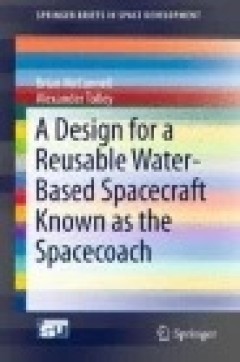
A Design for a Reusable Water-Based Spacecraft Known as the Spacecoach
Based on components already in existence, this manual details a reference design for an interplanetary spacecraft that is simple, durable, fully reusable and comprised mostly of water. Using such an accessible material leads to a spacecraft architecture that is radically simpler, safer and cheaper than conventional capsule based designs. If developed, the potential affordability of the design w…
- Edition
- Ed. 1
- ISBN/ISSN
- 978-3-319-22676-7
- Collation
- -
- Series Title
- -
- Call Number
- 629.4 MCC d
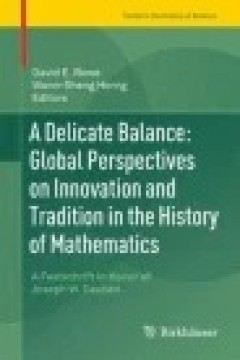
A Delicate Balance: Global Perspectives on Innovation and Tradition in the Hi…
Joseph W. Dauben, a leading authority on the history of mathematics in Europe, China, and North America, has played a pivotal role in promoting international scholarship over the last forty years. This Festschrift volume, showcasing recent historical research by leading experts on three continents, offers a global perspective on important themes in this field.
- Edition
- Ed. 1
- ISBN/ISSN
- 978-3-319-12030-0
- Collation
- -
- Series Title
- Trends in the History of Science
- Call Number
- 511 DEL d

A Decade of Research on School Principals: Cases from 24 Countries
This book provides a unique map of the focus and directions of contemporary research on school leadership since 2000 in 24 countries. Each of these directions has its own particular cultural, educational and policy history. Taken together, the various chapters in the volume provide a rich and varied mosaic of what is currently known and what is yet to be discovered about the roles and practices…
- Edition
- Ed. 1
- ISBN/ISSN
- 978-3-319-23027-6
- Collation
- -
- Series Title
- Studies in Educational Leadership
- Call Number
- 320 DEC d
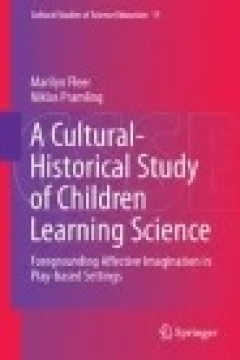
A Cultural-Historical Study of Children Learning Science: Foregrounding Affec…
This book moves beyond the traditional constructivist and social-constructivist view of learning and development in science. It draws upon cultural-historical theory in order to theorise early childhood science education in relation to our currently globalised education contexts. The book argues that concept development in science for young children can be better theorised by using Vygotsky’s…
- Edition
- Ed. 1
- ISBN/ISSN
- 978-94-017-9370-4
- Collation
- -
- Series Title
- Cultural Studies of Science Education
- Call Number
- 507 FLE c
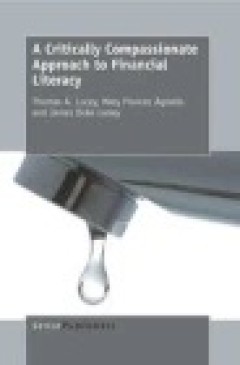
A Critically Compassionate Approach to Financial Literacy
A Critically Compassionate Approachto Financial Literacy offers a unique approach to conceptualizing financial literacy. Differentiating between notions of financial worth and personal self-worth, the authors present a description of financial literacy tenets founded in principles of self-awareness and cooperative community that are rooted in principles of compassion. Basing their work on princ…
- Edition
- Ed. 1
- ISBN/ISSN
- 978-94-6300-130-4
- Collation
- -
- Series Title
- -
- Call Number
- 370 LUC c
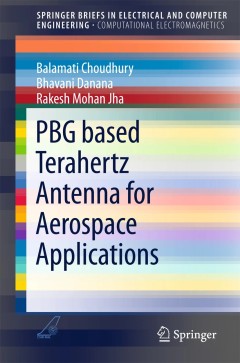
PBG based Terahertz Antenna for Aerospace Applications
This book focuses on high-gain antennas in the terahertz spectrum and their optimization. The terahertz spectrum is an unallocated EM spectrum, which is being explored for a number of applications, especially to meet increasing demands of high data rates for wireless space communications. Space communication systems using the terahertz spectrum can resolve the problems of limited bandwidth of p…
- Edition
- -
- ISBN/ISSN
- 978-981-287-802-1
- Collation
- xxiii, 51 halaman
- Series Title
- Springer Briefs in Electrical and Computer Engineering
- Call Number
- 621.384 8 CHO p
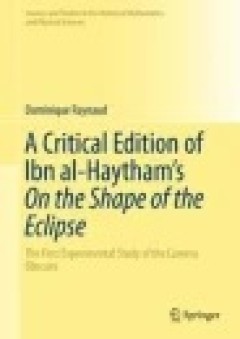
A Critical Edition of Ibn al-Haytham’s On the Shape of the Eclipse: The Fir…
This book provides the first critical edition of Ibn al-Haytham’s On the Shape of the Eclipse with English translation and commentary, which records the first scientific analysis of the camera obscura. On the Shape of the Eclipse includes pioneering research on the conditions of formation of the image, in a time deemed to be committed to aniconism. It also provides an early attempt to merge t…
- Edition
- Ed. 1
- ISBN/ISSN
- 978-3-319-47991-0
- Collation
- -
- Series Title
- -
- Call Number
- 621.366 RAY c
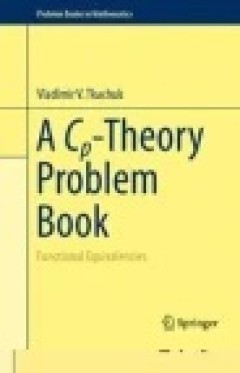
A Cp-Theory Problem Book: Functional Equivalencies
This fourth volume in Vladimir Tkachuk's series on Cp-theory gives reasonably complete coverage of the theory of functional equivalencies through 500 carefully selected problems and exercises. By systematically introducing each of the major topics of Cp-theory, the book is intended to bring a dedicated reader from basic topological principles to the frontiers of modern research. The book presen…
- Edition
- -
- ISBN/ISSN
- 978-3-319-24385-6
- Collation
- -
- Series Title
- Problem Books in Mathematics
- Call Number
- 514.1 TKA a

PARP Inhibitors for Cancer Therapy
PARP Inhibitors for Cancer Therapy provides a comprehensive overview of the role of PARP in cancer therapy. The volume covers the history of the discovery of PARP (poly ADP ribose polymerase) and its role in DNA repair. In addition, a description of discovery of the PARP family, and other DNA maintenance-associated PARPs will also be discussed. The volume also features a section on accessible c…
- Edition
- -
- ISBN/ISSN
- 978-3-319-14151-0
- Collation
- xix, 591 halaman
- Series Title
- Cancer Drug Discovery and Development
- Call Number
- 616.15 POL
 Computer Science, Information & General Works
Computer Science, Information & General Works  Philosophy & Psychology
Philosophy & Psychology  Religion
Religion  Social Sciences
Social Sciences  Language
Language  Pure Science
Pure Science  Applied Sciences
Applied Sciences  Art & Recreation
Art & Recreation  Literature
Literature  History & Geography
History & Geography